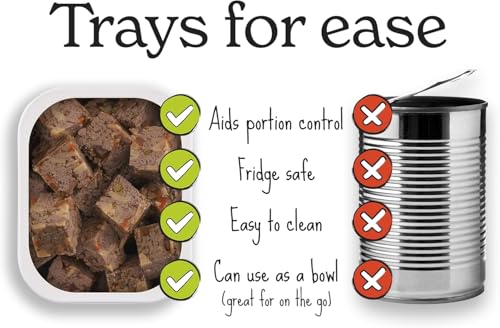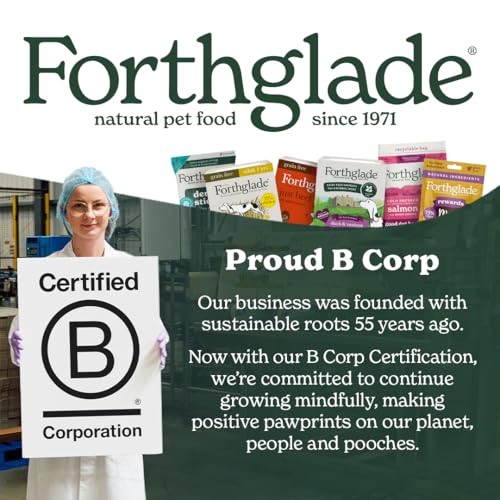




As a dog owner, I understand how challenging it can be to find the right food for a pet with colitis. After trying various commercial dog foods with no success, I decided to research and create my own homemade recipes to help alleviate my furry friend’s symptoms.
When it comes to choosing the best homemade dog food for colitis, it’s important to focus on ingredients that are easily digestible and gentle on the stomach. I opt for lean meats like chicken or turkey, paired with easily digestible carbohydrates like rice or sweet potatoes. These ingredients provide essential nutrients without worsening my dog’s colitis symptoms.
By preparing homemade dog food for my pet with colitis, I have seen a significant improvement in their overall health and well-being. Not only do they enjoy the taste of the food, but they also experience fewer flare-ups and digestive issues. If you’re looking for a solution to your dog’s colitis, consider trying these homemade recipes to see the difference it can make.
Understanding Colitis in Dogs
Having a dog with colitis can be a challenging experience for both the pet and their owner. Colitis is a condition that causes inflammation in the colon, leading to symptoms such as diarrhea, abdominal pain, and discomfort. It can be caused by various factors, including dietary indiscretion, stress, infections, or underlying health conditions.
When dealing with colitis in dogs, it is important to consult with a veterinarian to determine the underlying cause and develop a treatment plan. This may involve changes in diet, medication, and lifestyle adjustments to help manage the symptoms and improve the dog’s quality of life.
Common symptoms of colitis in dogs include:
- Chronic diarrhea
- Bloody or mucousy stools
- Abdominal pain or discomfort
- Loss of appetite
- Weight loss
Benefits of Homemade Dog Food for Colitis
In my experience, feeding homemade food to my dog with colitis has had numerous benefits. Firstly, I have noticed that by controlling the ingredients in the food, I am able to eliminate any potential triggers that may worsen my dog’s condition. This level of customization ensures that I can provide a diet that is easily digestible and soothing for his sensitive digestive system.
Another advantage of preparing homemade dog food for colitis is the ability to use high-quality, nutrient-dense ingredients. By sourcing fresh, whole foods, I can ensure that my dog is receiving the essential vitamins, minerals, and proteins necessary for healing and maintaining a healthy gut. Commercial dog foods often contain fillers and additives that can exacerbate digestive issues, so creating my own meals allows me to avoid these potential irritants.
- Customization: Control over ingredients to eliminate triggers
- Nutrient-Dense: Use high-quality, fresh ingredients for essential nutrients
Essential Ingredients for Homemade Dog Food
When preparing homemade dog food, it is important to include a variety of ingredients to ensure your dog receives all the essential nutrients they need to stay healthy.
Some key ingredients to include in homemade dog food recipes are lean protein sources such as chicken, turkey, or fish, which are essential for muscle maintenance and growth. Vegetables like carrots, spinach, and sweet potatoes provide vitamins and minerals, while carbohydrates like brown rice or quinoa offer a good source of energy for your dog.
- Lean Protein: Chicken, turkey, fish
- Vegetables: Carrots, spinach, sweet potatoes
- Carbohydrates: Brown rice, quinoa
Sample Homemade Dog Food Recipes for Colitis
When dealing with colitis in dogs, it’s important to provide them with a homemade diet that is gentle on their digestive system. Here are a couple of recipes that have worked well for my dog with colitis:
Recipe 1:
- Ingredients: 1 cup cooked brown rice, 1 cup boiled chicken (shredded), 1/2 cup cooked sweet potatoes (mashed), 1/4 cup boiled carrots (diced).
- Instructions: Mix all ingredients together and serve to your dog. This recipe is easy on the stomach and provides essential nutrients for recovery.
Recipe 2:
- Ingredients: 1/2 cup cooked quinoa, 1/2 cup cooked turkey (ground), 1/4 cup cooked pumpkin (mashed), 1/4 cup steamed green beans.
- Instructions: Combine all ingredients and feed to your dog. This recipe is high in protein and fiber, which can help soothe inflammation in the digestive tract.
Dos and Don’ts of Feeding Dogs with Colitis
If your dog is suffering from colitis, it’s important to be mindful of what you feed them. Here are some dos and don’ts to keep in mind when preparing homemade meals for your furry friend.
- Do: Opt for easily digestible proteins such as boiled chicken, turkey or lean ground beef.
- Do: Include soluble fiber sources like pumpkin, sweet potatoes or white rice to help regulate your dog’s digestive system.
- Do: Consider adding probiotics to your dog’s diet to promote good gut health and aid in digestion.
- Don’t: Feed your dog spicy, greasy or heavily seasoned foods as they can aggravate their digestive issues.
- Don’t: Give your dog bones, as they can cause irritation or blockages in their intestines.
- Don’t: Forget to consult with your veterinarian before making any significant changes to your dog’s diet.
Transitioning Your Dog to Homemade Food
When I decided to switch my dog to homemade food due to his colitis, I knew I had to do it gradually to prevent any digestive upsets. Transitioning your dog to a new diet is a process that requires patience and consistency.
Start by mixing a small amount of the homemade food with your dog’s current food. Gradually increase the ratio of homemade food to commercial food over the course of a week or two. This slow transition allows your dog’s digestive system to adjust to the new ingredients and helps prevent any stomach issues.
- Monitor your dog’s reaction to the new food during the transition period.
- Make sure to provide plenty of fresh water for your dog.
- Consult with your veterinarian for guidance on the best way to transition your dog to homemade food.
Monitoring and Adjusting Your Dog’s Diet for Colitis
After transitioning to a homemade dog food diet for colitis, it is important to closely monitor your dog’s symptoms and overall health. Keep a diary of what they eat and any changes in their condition. Look out for signs of improvement or worsening of their colitis, such as changes in stool consistency, frequency of bowel movements, and overall energy levels.
It is important to be patient and observant when adjusting your dog’s diet for colitis. Be prepared to make gradual changes to their food and monitor how they respond. Keep in mind that every dog is different, so what works for one may not work for another. Consult with your veterinarian regularly to discuss your dog’s progress and make any necessary adjustments to their diet plan.
- Observe changes in symptoms
- Keep a food diary
- Consult with your vet regularly
Consultation with a Veterinarian for Homemade Dog Food Plans
Before starting any homemade dog food plan for a dog with colitis, it is important to consult with a veterinarian. Veterinary professionals can provide valuable advice on the best ingredients to use, portion sizes, and meal frequency for your dog’s specific needs. They can also help monitor your dog’s progress and make any necessary adjustments to the homemade diet.
Additionally, veterinarians can perform tests to determine the underlying cause of colitis in your dog and recommend any necessary treatment options. They can also provide guidance on supplements or medications that may be beneficial for managing your dog’s condition.
- Consult with a veterinarian before starting a homemade dog food plan.
- Follow their recommendations for ingredients, portion sizes, and meal frequency.
- Monitor your dog’s progress and make any necessary adjustments.
- Consider any additional treatments or supplements recommended by your veterinarian.
Conclusion: Consultation with a veterinarian is crucial for ensuring that your homemade dog food plan is tailored to your dog’s specific needs and will help manage their colitis effectively. By working together with your veterinarian, you can provide the best care for your furry friend and improve their overall health and well-being.
Best Homemade Dog Food For Colitis
Features
| Model | Wet Dog Food |
| Color | Colour |
| Size | 395g (Pack of 18) |
Features
| Part Number | Qsweet |
| Model | TRTAZ11A |
| Size | 785 g (Pack of 12) |
| Price history for Veterinary Recommended Dog Food | |
|---|---|
|
Latest updates:
|
|
Features
| Is Adult Product | |
| Release Date | 2025-05-17T00:00:01Z |
| Language | English |
| Number Of Pages | 213 |
| Publication Date | 2025-05-17T00:00:01Z |
Features
| Part Number | 0000 |
| Model | 0000 |
| Warranty | 45 Day Money Back |
| Size | Single Pack |
| Price history for Probiotics for Digestive Health in Dogs | |
|---|---|
|
Latest updates:
|
|
Features
| Part Number | 12274091 |
| Model | 12274091 |
| Release Date | 2015-08-24T00:00:01Z |
| Size | 1 count (Pack of 1) |
| Language | Spanish |
| Price history for Low Fat Gastrointestinal Dry Dog Food | |
|---|---|
|
Latest updates:
|
|
Features
| Part Number | 12274093 |
| Model | TP-7613035152908_Vendor |
| Release Date | 2015-08-24T00:00:01Z |
| Size | 11 kg (Pack of 1) |
| Language | Spanish |
| Price history for Hypoallergenic Dry Dog Food for Allergies | |
|---|---|
|
Latest updates:
|
|
Question-answer:
What is the best homemade dog food for colitis?
The best homemade dog food for colitis usually includes easily digestible proteins such as lean meats like chicken or turkey, bland carbohydrates like rice or sweet potatoes, and fibre-rich vegetables like carrots or green beans.
How can I make homemade dog food for a dog with colitis?
To make homemade dog food for a dog with colitis, you can start by cooking lean ground meat like turkey or chicken, adding in cooked rice or sweet potatoes, and mixing in fibre-rich vegetables like carrots or green beans. Be sure to consult with your veterinarian first to ensure the recipe meets your dog’s specific dietary needs.
Are there any ingredients I should avoid when making homemade dog food for colitis?
When making homemade dog food for colitis, it’s best to avoid ingredients that are high in fat, spices, dairy, or artificial additives as these can exacerbate symptoms of colitis. It’s important to consult with your veterinarian before making any dietary changes for your dog.
How can I transition my dog to a homemade diet for colitis?
To transition your dog to a homemade diet for colitis, start by gradually mixing in small amounts of the homemade food with their current food over a period of about a week. Monitor your dog’s stool and overall health during this transition period and consult with your veterinarian if you have any concerns.





































